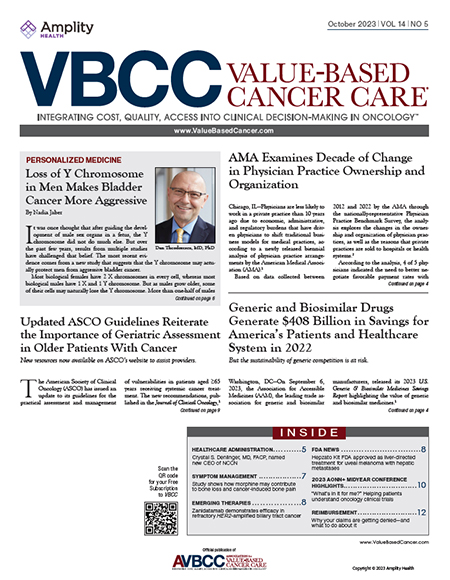In the November 5 keynote session of the Association for Value-Based Cancer Care (AVBCC) 10th Annual Summit, industry leaders Matthew Eyles, MS, President and CEO of America’s Health Insurance Plans, and Stephen Ubl, President and CEO of Pharmaceutical Research and Manufacturers of America, provided a look forward on the cancer care industry.
With the hyperpoliticization of healthcare, the ongoing election has created uncertainty in the market. In the future, there will be a demand for parties to work together.
Burt Zweigenhaft, PhD, D.Litt., Co-Founder of AVBCC, moderated the keynote session alongside William McGivney, PhD, Managing Principal of McGivney Global Advisors. Dr Zweigenhaft posed the topic of the gross-to-net bubble, citing that some oncology drug costs could represent 68% of total cancer care.
Mr Eyles said that he believes the gross-to-net bubble starts with manufacturers, noting that drug pricing is the most complex area of the system, and that there needs to be transparency in the system, especially at the consumer level.
Mr Ubl said the gross-to-net bubble needs to be punctured. In cancer, 90% of patient out-of-pocket spending is tied to deductibles and co-insurance, and patients are more likely to abandon therapy because of high copays and co-insurance.
“At some level, the system doesn’t work if we don’t have benefit designs that facilitate patient access,” said Mr Ubl.
The COVID-19 pandemic has made a significant impact on the industry. Both panelists agreed there have been valuable lessons learned in the ways that companies collaborate with each other and with government. Looking forward, pandemic preparedness will be a key issue.
Other hot topics in this session included the rising costs of deductibles, 2-sided risks, and cell and gene therapies.
You can still register for the AVBCC Summit! With more than 40 webcasts and other sessions, the 10-week agenda is packed with timely insights and no-holds-barred debates that you need to understand today’s cancer care ecosystem and trends for the future


